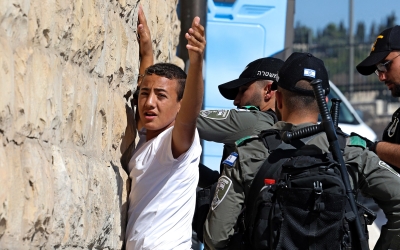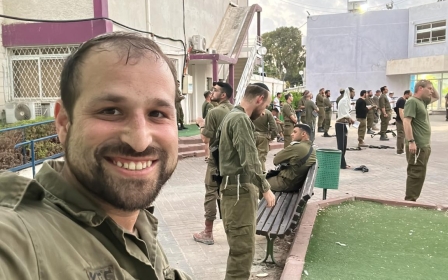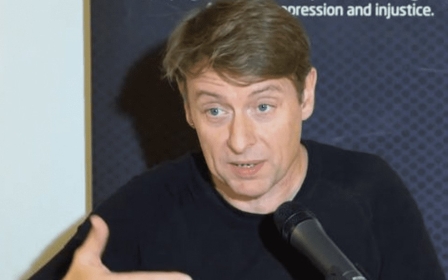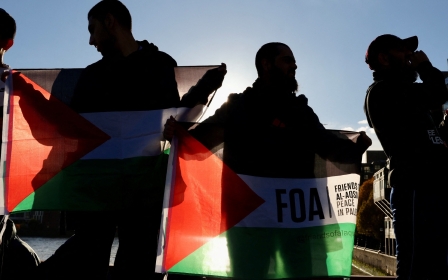Jewish chaplains at UK universities recruited to be ‘advocates for Israel’
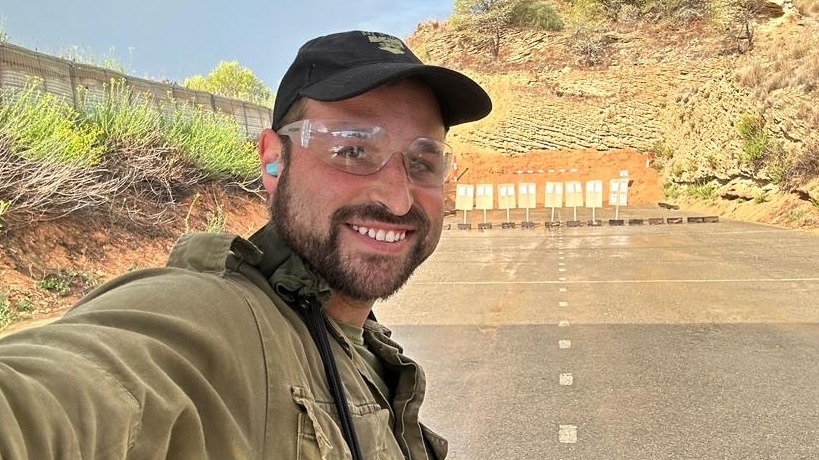
A chaplaincy service used by British universities to provide pastoral support for Jewish students requires its chaplains to be pro-active advocates for Israel, Middle East Eye can reveal.
The University Jewish Chaplaincy (UJC) is a registered charity that operates in dozens of universities across the UK. It provides chaplains and chaplaincy couples and says they are “there for Jewish students of all backgrounds and affiliations”.
The UJC is also currently advising ministers on new guidelines the government has promised to deliver on tackling antisemitism in higher education.
But in job descriptions on its website for vacant chaplaincy posts in Brighton, Bristol and Glasgow the UJC listed being a "pro-active Israel advocate" among essential requirements for candidates.
A “job opportunities” page on the UJC’s website appears to have been removed since MEE contacted the organisation. The UJC did not respond to repeated requests for comment about why it required its chaplains to be advocates for Israel.
New MEE newsletter: Jerusalem Dispatch
Sign up to get the latest insights and analysis on Israel-Palestine, alongside Turkey Unpacked and other MEE newsletters
Alongside providing pastoral care to Jewish students, the UJC says its chaplains speak to university officials, work closely with clergy for other religions, and get involved in interfaith activities on campuses in their regions.
The UJC says its chaplains are also there to "support and encourage" university Jewish societies and "represent Jewish students’ interests to the university to protect Jewish life - eg. cancellation of antagonistic speakers, response to anti-Jewish hostility”.
"You will be a source of strength and support to all Jewish students and serve as representatives to the universities in your region," a website page promoting the vacant chaplaincy jobs said.
But Neve Gordon, a professor of human rights law at London's Queen Mary University and vice president of the British Society for Middle Eastern Studies (Brismes), questioned how a chaplain expected to advocate for Israel could provide pastoral support to all Jewish students on campuses.
“In these job advertisements, there is a conflation with being Jewish and being an advocate of Israel, which by no means reflects the position of many Jews in the UK,” said Gordon, who is Israeli.
Gordon said he had recently met at another university with a Jewish student group supportive of Palestinian rights who said they did not feel that their views were taken into account by the Jewish student society.
“If a chaplain conceives of their role as an advocate of Israel, that chaplain will not only be unable to represent many Jewish students and staff across campuses in the UK but will be advocating a position that undermines some of their core values."
UJC under scrutiny
The role of the UJC has come under scrutiny after it emerged that one of its chaplains, Zechariah Deutsch, who works at the University of Leeds and a number of other universities, took leave last year to serve as a reservist in the Israeli army following the start of the war with Hamas in Gaza.
Deutsch, who is an Israeli national, sent a series of videos to students via a chaplaincy WhatsApp group, in which he defended his decision to return to Israel to join the army.
This prompted some students to protest and call for his resignation. Deutsch has not responded to requests from MEE for comment.
These protests escalated last month after it emerged that Deutsch was back at Leeds University. A building used by the university’s Jewish Society was daubed with pro-Palestine graffiti.
The University of Leeds condemned these events as "antisemitic attacks" and said it was working with West Yorkshire Police and the UJC to “ensure Deutsch continues supporting Jewish students at Leeds and other universities he serves in the Yorkshire region".
Deutsch and his family were reported to have gone into hiding after receiving death threats. The chaplain is understood to have returned to the campus on 26 February to attend a demonstration against antisemitism organised by the university Jewish Society and the Union of Jewish Students.
The incident also prompted the government to intervene, with higher education minister Robert Halfon meeting Deutsch and Leeds' interim vice-chancellor, and accusing universities of “turning a blind eye to antisemitism”.
He said the government would issue new guidelines on tackling antisemitism in universities after consultation with organisations including the UCJ, and would create a new post of expert adviser on antisemitism in higher education.
In a speech last week to the Community Security Trust, which monitors antisemitism, Prime Minister Rishi Sunak also said that university leaders should take personal responsibility for protecting Jewish students.
“I want you to know that we are calling in the vice chancellors of the country’s leading universities to meet in Downing Street to discuss exactly how they will do that,” said Sunak.
Undermining struggle against antisemitism
The University of Leeds has nonetheless continued to face calls to remove Deutsch from his role.
Late last month, more than a dozen pro-Palestine groups in the north of England called on the University of Leeds to "immediately suspend" Deutsch from the university's chaplaincy service and to cut ties with the UJC.
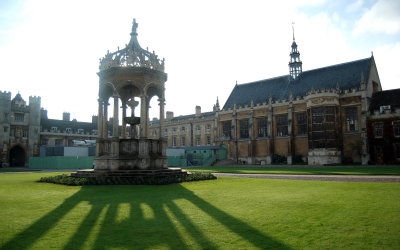
“Associating Palestinian solidarity actions and legitimate safeguarding concerns about Deutsch with antisemitic incidents whilst simultaneously failing to mention his recent conduct is deliberately deceptive and misleading,” the groups wrote in an open letter.
Last week, Farhat Yaqoob, a Muslim chaplain at the university, resigned from her post, citing the climate on campus since the Hamas attacks on Israel and the start of the war in Gaza as a factor.
“I have witnessed that social justice is an integral part of everyone’s duty of care, doing the right thing, saying the right thing, fighting for the right causes - no matter what,” Yaqoob said in a statement provided to Leeds University Islamic Society.
“Based on the current climate, especially since the international events around early October 2023, I have struggled to find those fundamental values lived out here on campus in the way that I feel works in harmony with me.”
The University of Leeds has not responded to MEE's request for comment.
Gordon told MEE that conflating a Jewish chaplaincy role with advocacy for Israel risked dangerously undermining the "real struggle" against antisemitism on campuses.
'We should keep in mind that antisemitism in the UK is alive and well and precisely because of that the approach adopted by both the UJC and UK government is dangerous'
– Neve Gordon, law professor
“We should keep in mind that antisemitism in the UK is alive and well and precisely because of that the approach adopted by both the UJC and UK government is dangerous, since it actually deflects and undermines the real struggle against hate speech towards Jews.
“Instead, most of the resources and energy are invested in silencing pro-Palestinian activism and stifling criticism of Israel.”
In addition to the University of Leeds, the UJC says that Deutsch also serves as a chaplain at the universities of York, Hull, Huddersfield, Bradford, Sheffield and Leeds Beckett.
MEE contacted all of these universities for comment. Bradford University said it had no affiliation with the UJC and told MEE it had requested the chaplaincy service take down its name from its website. None of the other universities had responded at the time of publication.
Middle East Eye delivers independent and unrivalled coverage and analysis of the Middle East, North Africa and beyond. To learn more about republishing this content and the associated fees, please fill out this form. More about MEE can be found here.


